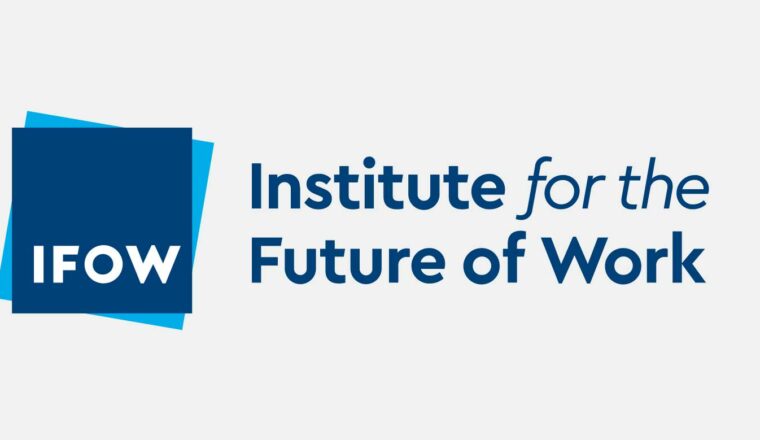Customers, consumers, and end-users as FinTech innovators? Reflections on Consumer Duty
What are the implications of the Guidance for Firms on the Consumer Duty? Research Assistant Daniel Williams writes about the Scotland Productivity Forum’s panel discussion on the issue and how this relates to increased productivity and financial security for both end users and for firms, held as part of National Productivity Week 2023.
 The Guidance for Firms on the Consumer Duty was first introduced by the Financial Conduct Authority (FCA) in July 2022. The Consumer Duty sets the standard of care that firms should give to customers in retail financial markets.
The Guidance for Firms on the Consumer Duty was first introduced by the Financial Conduct Authority (FCA) in July 2022. The Consumer Duty sets the standard of care that firms should give to customers in retail financial markets.
A balanced approach between regulation, innovation and consumer empowerment aims to increase consumer participation, security, and financial responsibility, and create a more inclusive and diverse FinTech sector to include those who lie beyond its historical scope.
A FinTech company is any business that uses technology to modify, enhance, or automate financial services for businesses or consumers. The discussion focused on financial inclusion, equality, and the impact of regulatory measures such as Consumer Duty, and the creation of a consumer-centric approach.
Key Themes
- Financial Inclusion and Equality John Finch, Professor of Marketing at the University of Glasgow highlighted the critical issues of financial inclusion and equality and the significant role the Consumer Duty regulation plays in addressing these concerns. He suggested leveraging Consumer Duty as a focal point for aligning the interests of innovators and consumers in the FinTech space.
- Bridging Gaps Through Innovation James Syron, Partnerships Manager at DirectID, underscored his company’s efforts as a consumer FinTech provider in bridging the divide between credit reference bureaus and customers through real-time data, enabled by “open banking” – i.e., the use of Application Programming Interfaces (APIs) to share financial data and services with third parties. Despite acknowledging the potential of a steep learning curve for consumers, Syron emphasised the long-term benefits of consumers and FinTech providers alike in adopting open banking in the longer term, arguing it will provide end users with better fiscal security and responsibility, with more transparency on the interactions between firms and end users.
- The Role of Consumer Duty in Financial Well-being Patrick Ring, Reader in Financial Services at Glasgow Caledonian University, and Dorothy Hamilton, Scottish President of the Chartered Institute for Securities and Investments emphasised the importance of linking Consumer Duty to notions of financial well-being and trust. Patrick argued the need for firms to demonstrate ‘good outcomes’ for consumers and the importance of understanding consumer problems, wants, and needs when building their relationships with end users. Dorothy advocated for financial institutions to think differently, delegate tasks to microservices, and foster curiosity within the FinTech community, underlining the need for increased collaboration, mixing job expertise with tech expertise for exponential growth on both the consumer and provider sides of the FinTech industry. Both agreed the need for a paradigm shift in how financial institutions view their relationship with consumers, highlighting the necessity for continuous innovation and adaptability.
- Enhancing Consumer Experience Ruari Scullion, Associate Partner at PEN discussed the need for updated procedures even in Business to Business (B2B) settings. He also explained the potential for FinTech to enhance consumers’ levels of understanding, and financial competence through enabling technologies, which, overall improve consumer experience. Rachel Curtis, CEO of Inicio; and Ren Yi Hooi, Founder and CEO of Lightning Reach shared insights on utilising conversational Artificial Intelligence (AI) and creating portals for aiding the financially vulnerable. Ren stressed the importance of these portals in helping financially stressed and vulnerable people, particularly during the Covid-19 pandemic, providing easy access to benefits, financial information, and grants, and emphasising the importance of engagement with consumers outside the mainstream. In turn, she argued this will continue to improve inclusivity to the financially vulnerable, who have historically lay outside the scope of most FinTech providers.
These contributions underscore the importance of enhancing customer experience through technological advancements, harnessing the power of breakthrough technologies such as AI in improving both consumer and provider experience, with the holistic goal of increased financial stability, literacy, and transparency from the FinTech side.
Secondary Themes
- Collaboration and Innovation Collaboration and innovative thinking play a critical role in integrating consumers into the innovation process, thereby fostering a more inclusive and participatory approach.
- Consumer-Centric Approaches Understanding consumer problems from the consumer’s perspective was paramount, leading to simplifying engagement processes, and establishing feedback loops for continuous improvement.
- Regulation and Trust the Consumer Duty was a catalyst for cultural change within the industry, emphasising the need for trust and confidence to foster meaningful collaboration and co-creation.
- Challenges and Solutions Aligning consumer interests with business motivations could be addressed with employing behavioural nudges and maintaining a dynamic feedback loop with consumers.
- Minimum Digital Living Standards The introduction of minimum digital living standards in Wales and (soon) in Scotland highlights a wider shift towards a more enabling regulatory landscape, as well as ongoing efforts to ensure inclusivity and engagement in the digital economy.
Policy Recommendations
The panel recommended a systematic re-valuation of systems and engagement strategies within the FinTech sector, including:
- Developing policies that support collaboration and participatory design in FinTech.
- Encouraging innovation through frameworks that facilitate experimentation and learning.
- Ensuring regulatory measures are centred on enhancing consumer understanding and management of risks.
- Facilitating partnerships and collaborations to build a resilient and inclusive FinTech ecosystem.
The session was held on 30 November 2023 and hosted by the University of Glasgow and The Productivity Institute at The Studio in central Glasgow, marking the third of a three-day series of events as part of the UK’s National Productivity Week.
This blog is the third in a series of four on the Scotland Productivity Forum’s events hosted as part of National Productivity Week in 2023.




